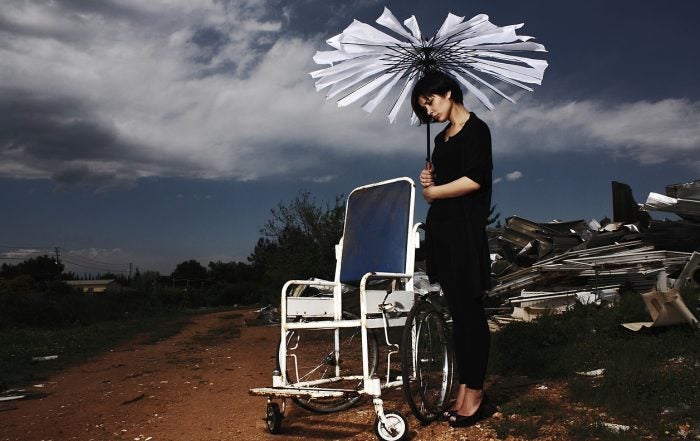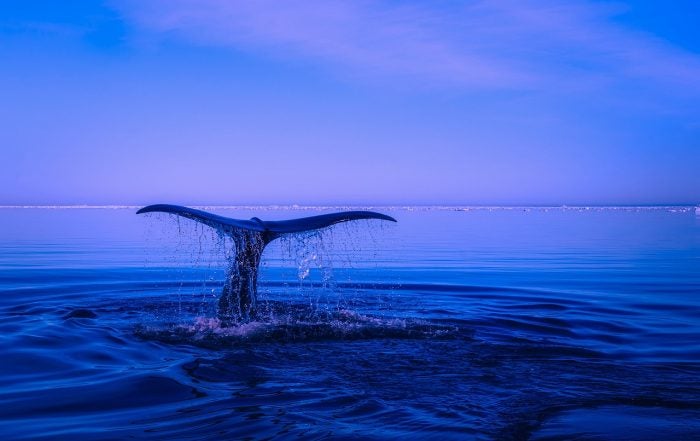Home » Biology (Page 13)
Category Archives: Biology
RoboBees: The Future of Food and Society?
By Tannavee Kumar, Genetics & Genomics, ’20 Author’s Note Going into my research on fully automated and autonomous bee swarms, I was aware that there was much controversy on how we as a society should address and work to solve the problem of the drastically declining honeybee population. Upon coming across the large initiative that […]
The Relationship Between Genetic Diversity and Disturbance in the Eelgrass Species Zostera marina
By Ryan Green Author’s note: This piece was written for my upper division university writing class, Writing in the Sciences. We were required to write a review article on a topic of our choice, and I chose the relationship between genetic diversity and disturbance of Zostera marina. I decided to pursue this topic because […]
Polylactic Acid as a Biodegradable Composite: A Review
By Madison Dougherty, Biochemistry and Molecular Biology, ‘18 Author’s Note: I wrote this paper for my UWP 104E class. I have always been interested in sustainability, and this paper provided me with an excellent outlet for researching methods related to environmentally friendly packaging options. In recent years, I have become increasingly aware of the harshness […]
Could a DNA Sample Reconstruct a Face?
By Anna Kirillova, Cell Biology, ’19 Author’s Note: I came across facial genetics in one of my classes and immediately decided to write a review about it. To my surprise, the field was not as developed as I’ve expected it to be, but with the rise of facial recognition technologies, this area of research will […]
Addressing Eutrophication: Algae as Wastewater Treatment and Potential Biofuel Source
By Sara Ludwick, Environmental Science & Management, ’19 Author’s note: In my Global Environmental Interactions class, we learned a lot about nitrogen and phosphorous as essential elements, but also as sources of eutrophication which threatens life in the ocean by disrupting food chains and causing anoxia. I decided to write a paper about the potential […]
Solving the Organ Shortage
By Sofie Bates Author’s Note: At the American Association for the Advancement of Science (AAAS) annual meeting this year, I had the opportunity to listen to Dr. Pablo Ross from UC Davis present in a panel discussion on gene editing to create xenogeneic organs. I wrote this article to highlight interesting research that is being […]
Understanding the Tumultuous Trajectory of a Concept in The Gene
By Daniel Erenstein, Neurobiology, Physiology, and Behavior, ‘19 Author’s Note: In my Writing in Science (UWP 104E) course, Dr. Brenda Rinard assigned us a review of a classic book in science. My interests in social history and the genetics of disease inspired me to read Siddhartha Mukherjee’s The Gene: An Intimate History. The following book […]
A Conversation with Dr. Kate Scow: “I just totally lost my heart to soil”
By Sara Ludwick, Environmental Science and Management, 2019 Author’s note: I read about Dr. Scow’s research while looking for a faculty member to interview for a class assignment. She is a professor of Soil Science and Microbial Ecology at UC Davis, and her research emphasizes microorganisms’ roles in providing ecosystems services. Dr. Scow was featured […]
Cell-free DNA Testing as the Next Generation of Cancer Screening
By: Anna Kirillova, Cell Biology, ‘19 Author’s Note: “This article was brought to my attention in my Human Genetics class (MCB 162) when we were discussing novel methodologies for diagnosis of fetal trisomies (Down Syndrome). The purpose of this review is to highlight how basic biology can translate into significant advancements in disease diagnosis. […]
Ants Who Farm: The Evolution of Fungal Obligate Symbiosis
By Wren Greaney, History major, Biological Sciences & Community Development minor, ’17 Author’s note: “I started to look into entomological research as a result of learning about insect diversity in ENT100. I came across a study regarding ants’ fascinating advanced ability to cultivate fungi. I thought it was incredible that we have agriculture in common […]

